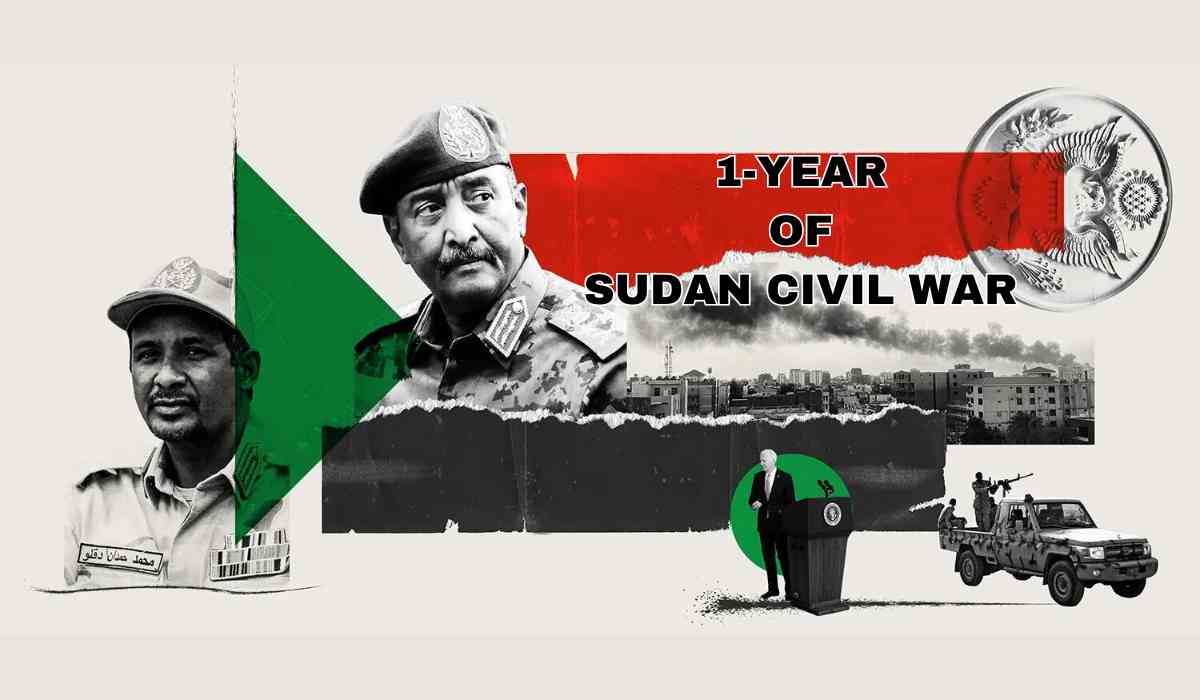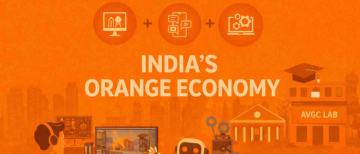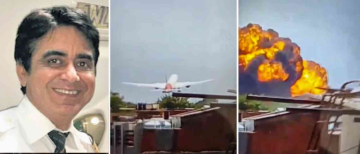As the first sombre anniversary in Sudan approaches since the eruption of the civil war, the situation in the country remains dire. The conflict, which started as a power struggle within the armed forces, has escalated into a full-blown crisis that has devastated the nation.
On April 15th, nearly a year ago, war erupted, intensifying deep-seated political and ethnic tensions. This conflict has devastated swathes of the country, particularly in Darfur, unleashing ethnic violence and pushing millions into severe hunger, resulting in the world's largest displacement crisis.
The consequences of twelve months of hostilities have been profound, thousands dead, millions hungry, and the Sudanese state on the brink of collapse. As new militias join the fray and the battlefield shifts unpredictably, the challenge of restoring Sudan grows ever more daunting.
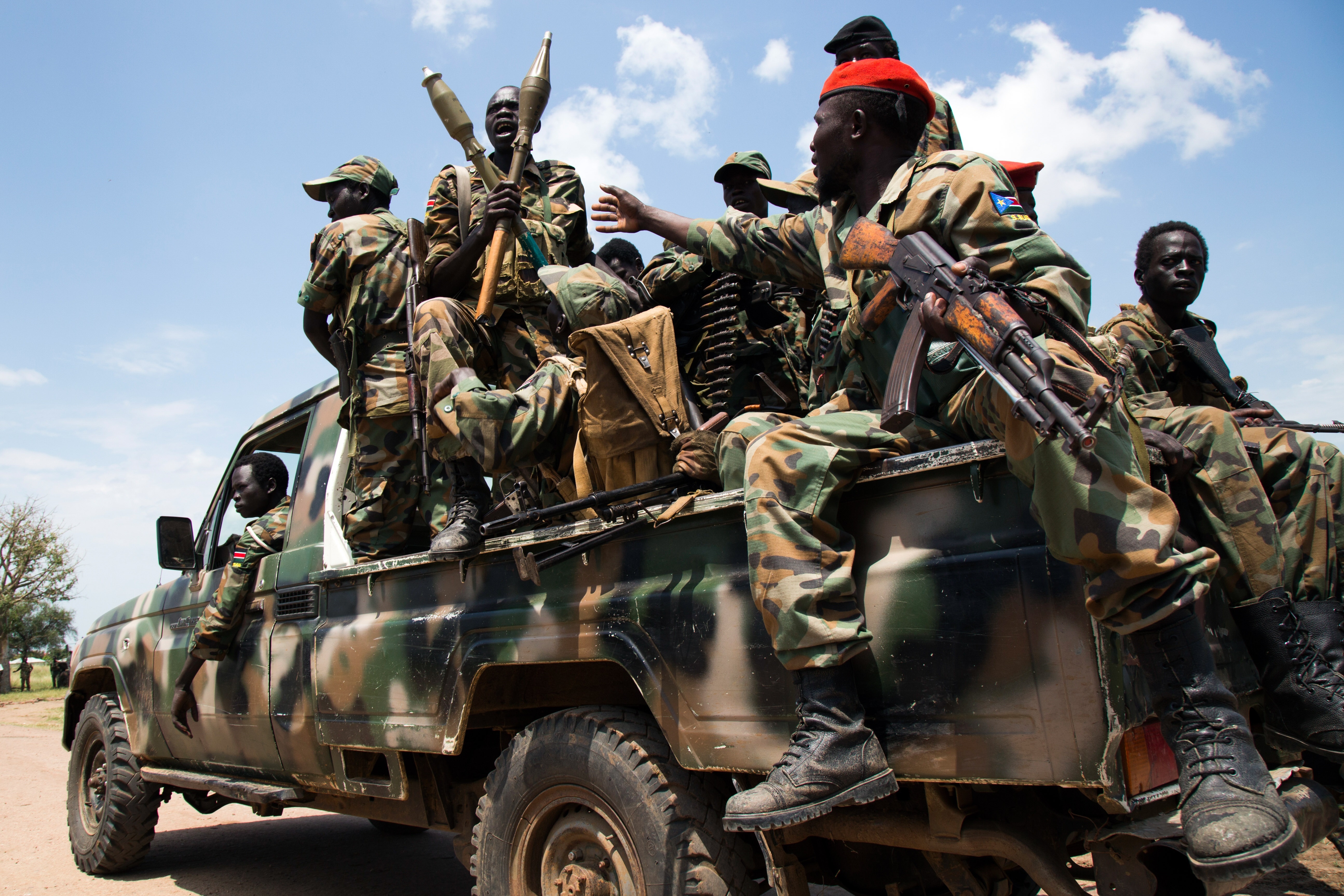
Despite renewed diplomatic efforts by the U.S., UN, and African Union through new envoys, collective peace initiatives lack coherence and urgency.
The conflict between the Sudanese Armed Forces (SAF) and the Rapid Support Forces (RSF) continues unabated, claiming nearly 16,000 lives and displacing millions. The crisis remains unresolved, exacerbated by failed diplomatic interventions and international policy missteps.
Here's all you need to know about Sudan's conflict, peacekeeping operations since it began, and the current humanitarian crisis.
Why is Sudan at war?
In April 2023, conflict erupted in Sudan as a power struggle between army chief Abdel Fattah al-Burhan and RSF commander Mohamed Hamdan “Hemedti” Dagalo intensified to a breaking point.
The turmoil began after President Omar al-Bashir, ruling for nearly three decades, was ousted by a popular uprising in 2019, setting the stage for a fragile transition to civilian democracy. However, hopes for stability were dashed when al-Burhan and Hemedti staged a coup in 2021, shattering the initial progress.
Initially, the army and RSF shared power. Still, tensions escalated due to an international Framework Agreement in December 2022, which aimed to reform the security sector and democratize the transition by integrating the RSF into the army.
Western nations urged swift resolution, offering aid and debt relief, but both sides feared losing control in a new political landscape. Tensions came to a head on April 15, 2023, in Khartoum, as armored vehicles rolled out and gunfire erupted between the military factions.
The conflict stemmed from disputes over integrating the RSF into regular armed forces and defining civilian oversight. Beyond politics, the warring parties also competed for economic interests that extended beyond Sudan's borders.
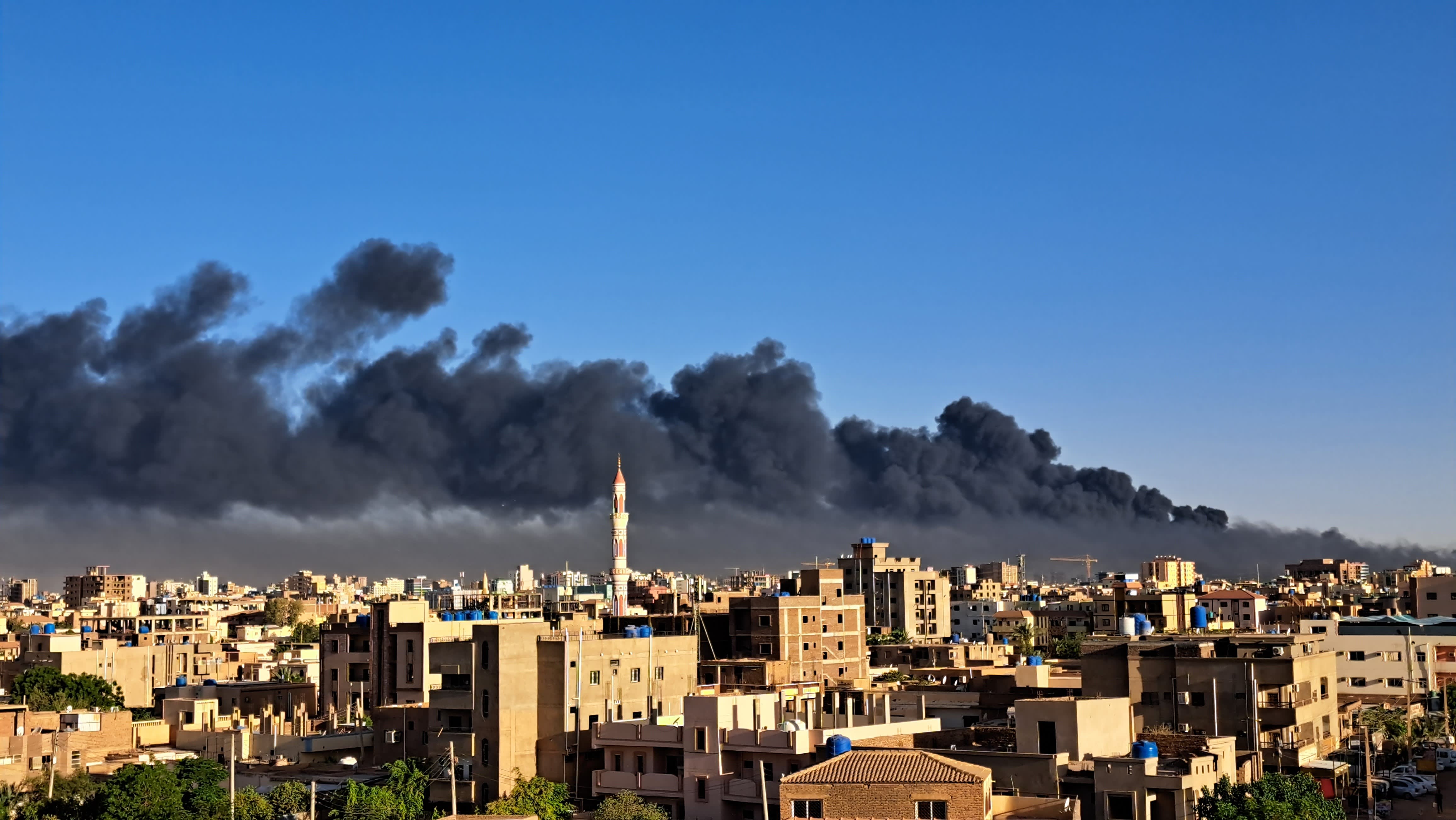
Who are the two rivals in this conflict?
The Sudanese Armed Forces (SAF) form the national military of Sudan, boasting around 300,000 soldiers. General al-Burhan, its military leader, rose through the ranks during President al-Bashir's era.
Conversely, the Rapid Support Forces (RSF) comprise approximately 100,000 well-equipped soldiers stationed in Khartoum and Darfur, their historical stronghold. Stemming from the Popular Defence Forces armed groups, the RSF originated during the Darfur conflict, where they were utilized by al-Bashir's government to suppress rebellions, albeit facing accusations of war crimes.
The RSF transitioned into an independent entity in 2013 under Hemedti, a Rizeigat Arab from Darfur with roots in camel herding. Seeking political legitimacy, Hemedti engaged in diplomatic visits across Africa, notably Uganda.
European policies, like the 2017 Khartoum Process, inadvertently bolstered the RSF's standing by funding them as border guards, although the group's reputation plummeted due to alleged extrajudicial acts and violence.
The power struggle centers on General Abdel Fattah al-Burhan, head of the Army and Sudan's ruling council since 2019, against his former deputy, General Mohamed Hamdan Dagalo (Hemedti). Amid Khartoum's turmoil, Burhan relocated to Port Sudan while Hemedti solidified control over the RSF.
Hemedti, enriched through gold mining, commands the RSF with familial and clan support from Darfur. He has engaged with civilian politicians to navigate a democratic transition post-war.
Gen. Burhan faces challenges within the Army, where Bashir loyalists and veterans dominate the post-2021 coup, whereas the RSF purports to cleanse Sudan of Bashir remnants, contrasting the Army's stance of defending against criminal rebels.
Reports have surfaced of extensive abuses by the RSF, including ethnically targeted violence, sexual assault, and looting, with similar allegations leveled against the Army, although both factions deny these claims.
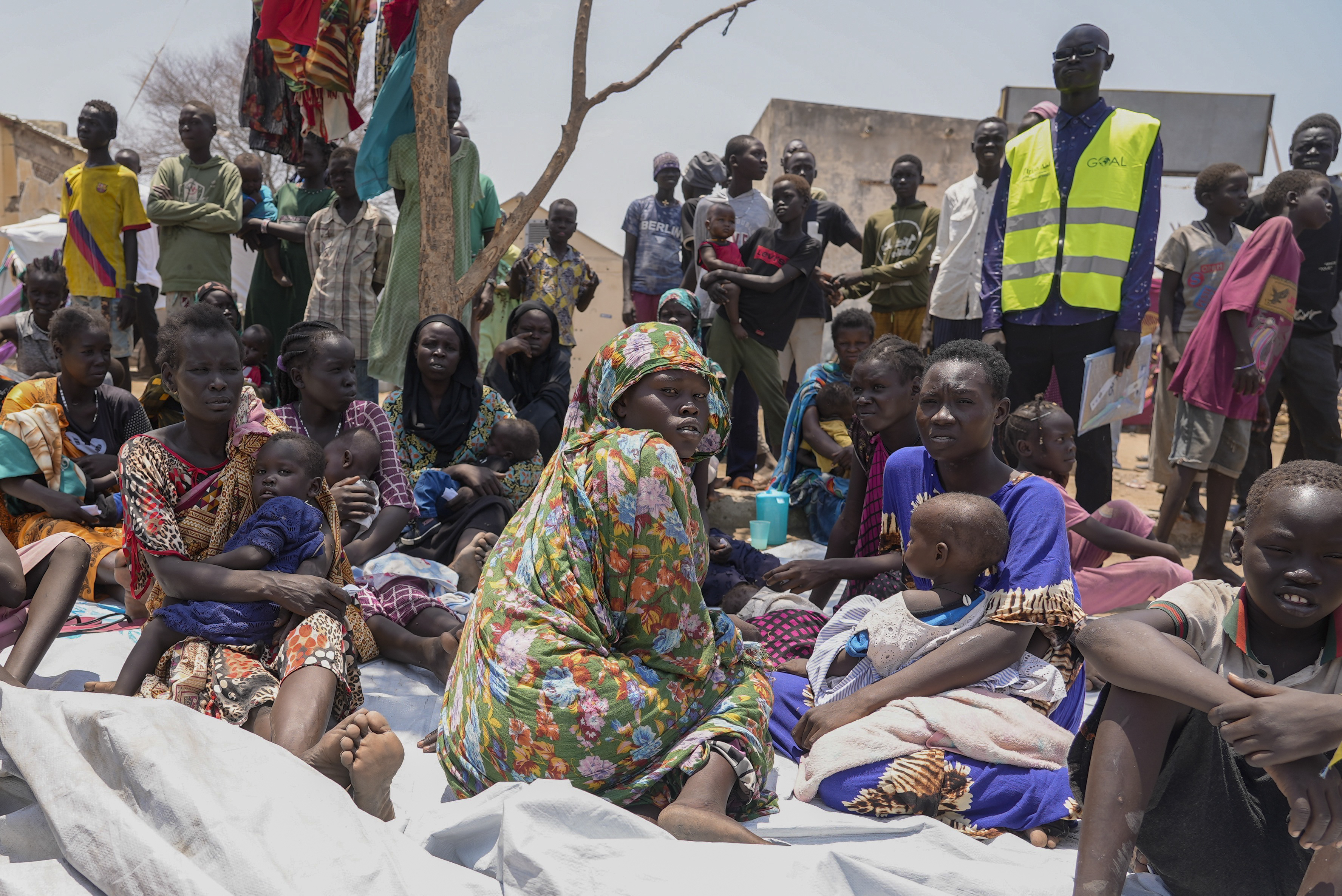
Who is leading?
Despite the Sudanese army's significant resources, including air power and an estimated 300,000 troops, the Rapid Support Forces (RSF) have emerged as a formidable unit with around 100,000 well-equipped troops deployed nationwide in recent years.
At the onset of the conflict, the RSF's agile units were strategically positioned within various neighborhoods across the capital. By the end of 2023, the RSF swiftly advanced, securing control over Darfur and capturing El Gezira state to the south of Khartoum—an essentially agricultural region.
However, more recently, the national army has begun to regain ground, achieving notable progress in Omdurman, one of the three cities comprising the broader capital region. This development signals a shifting dynamic in the ongoing conflict.
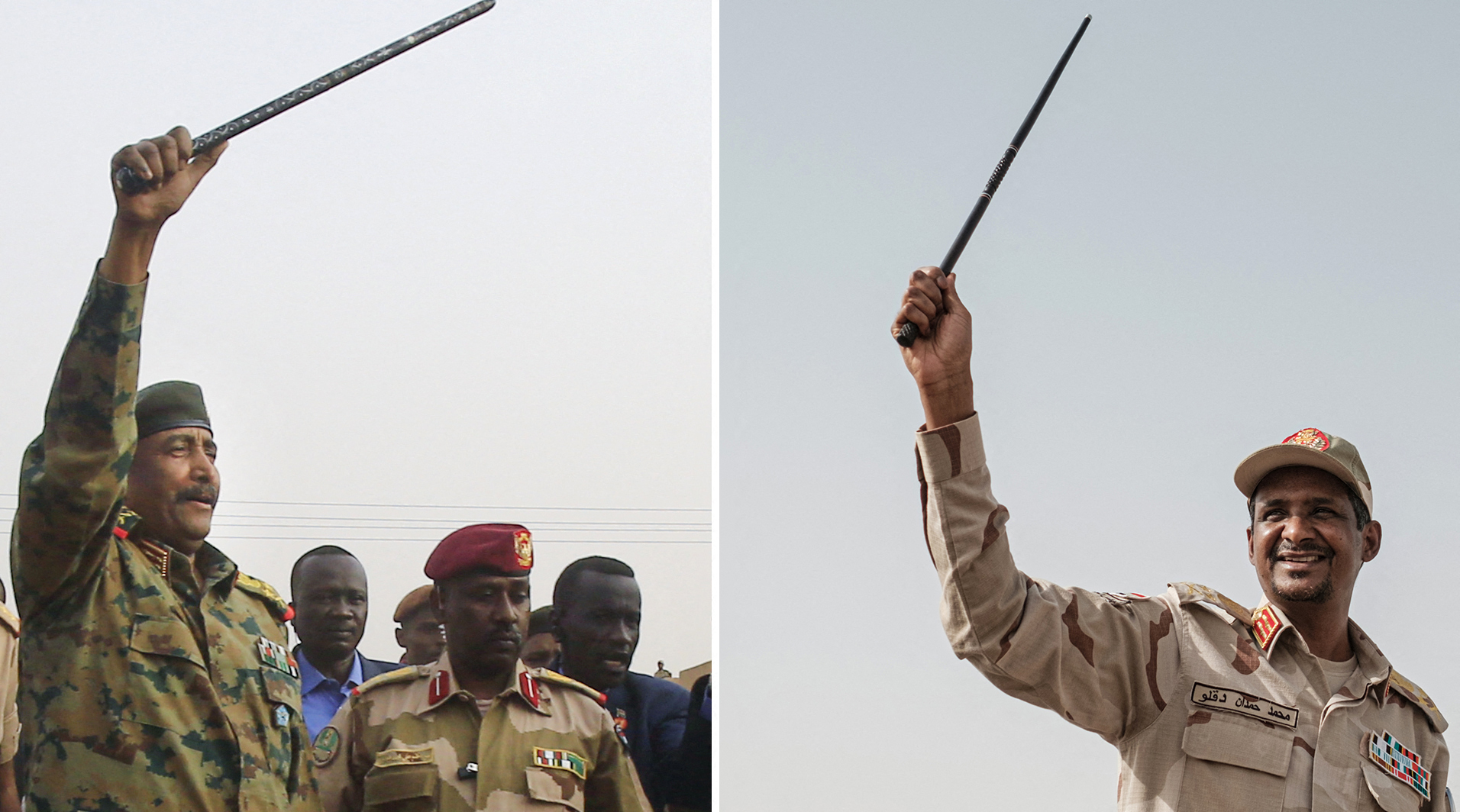
Are there more groups involved in the war?
Various factions have joined the ranks of armed groups, with some showing allegiance to the Sudanese Armed Forces (SAF). Alongside these developments, civilians have organized themselves into a new coalition known as “Taqaddum” or the Sudanese Coordination of Civil Democratic Forces, established in October 2023. Led by Sudan's former Prime Minister Abdallah Hamdok, this coalition seeks to advocate for civilian interests during peace negotiations.
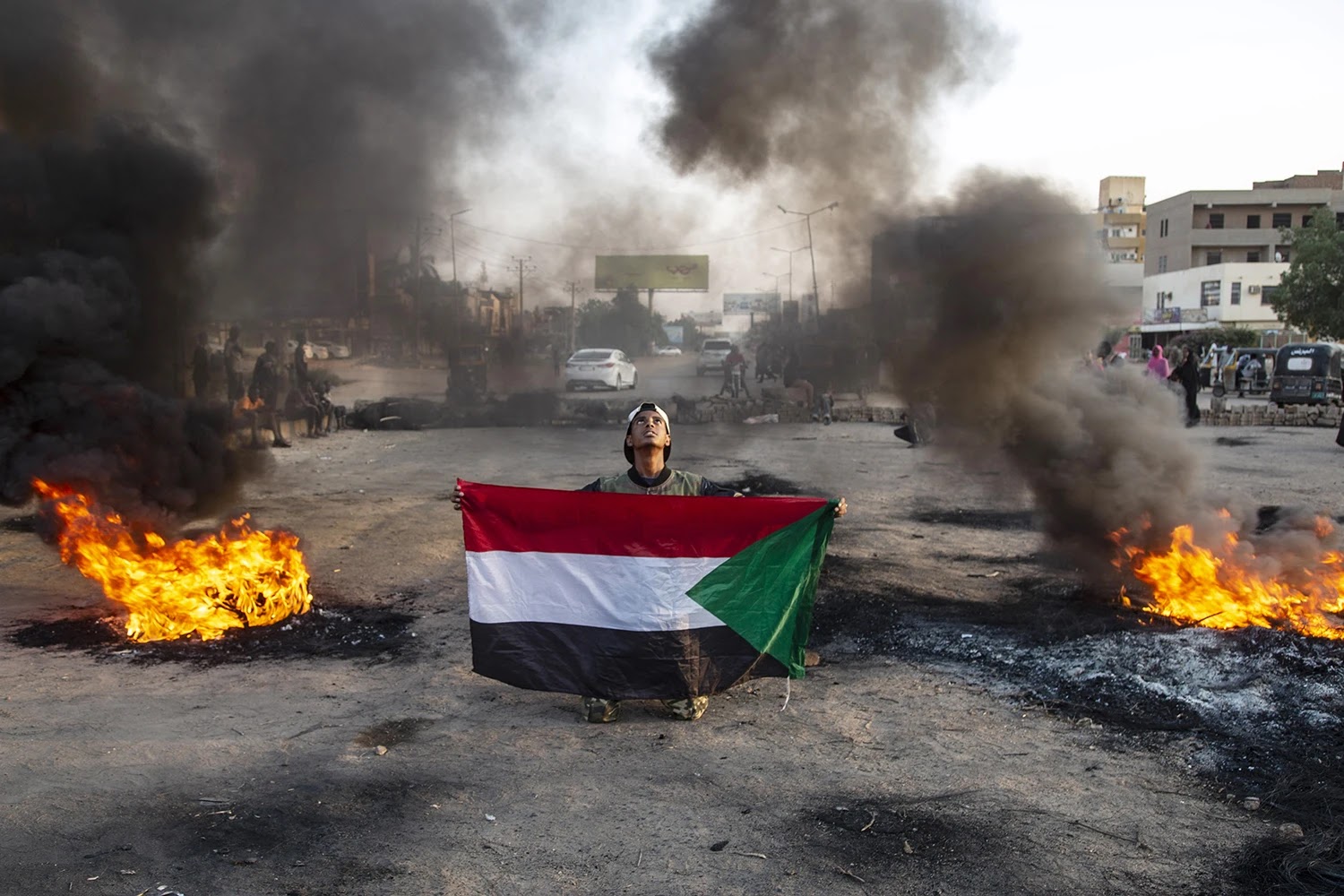
How many people died?
Conflict has ravaged multiple regions of the country, leading to the breakdown of vital infrastructure such as healthcare and sanitation, and resulting in significant loss of life and the displacement of millions. The exact death toll remains uncertain, with figures varying widely between different sources.
As of April 2024, approximately 16,000 individuals, including military personnel, had lost their lives according to the Armed Conflict Location & Event Data Project (ACLED). However, experts caution that these numbers likely represent only a portion of the true fatalities, given the challenges of gathering accurate, real-time data during an ongoing conflict.
A UN refugee agency report from October revealed that nearly 4,000 civilians had died and 8,400 were injured in Darfur alone between April 15 and the end of August. Another UN report in January indicated that between 10,000 and 15,000 individuals had perished in El Geneina, a city in Sudan's West Darfur region, during the previous year.
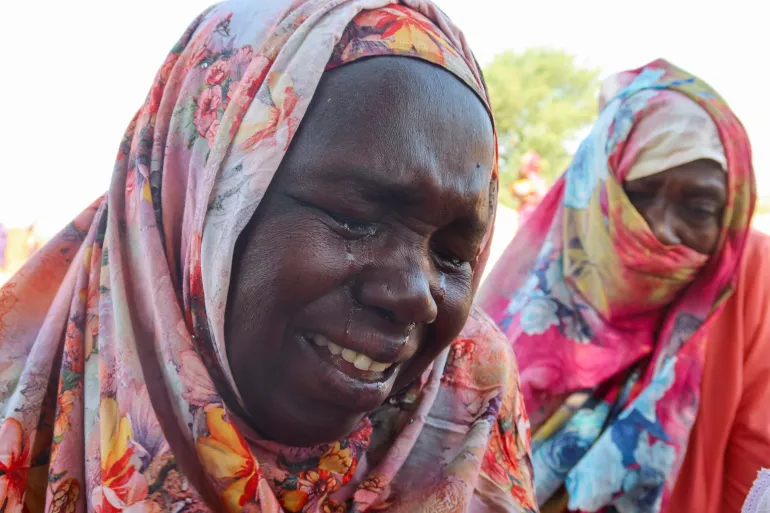
How many people were forced out?
Initially, evacuation efforts during the early days of the conflict primarily assisted foreign nationals. Since the outbreak of fighting, an estimated 8.2 million Sudanese, out of a population of 49 million, have been displaced, according to the UN's Office for the Coordination of Humanitarian Affairs (UNOCHA). Of these, nearly 1.8 million have sought refuge in neighboring countries such as Chad, Egypt, Ethiopia, and South Sudan.
Many of these displaced individuals have undertaken perilous journeys, often paying exorbitant sums for bus tickets or traversing on foot for days through challenging terrain. Approximately 6.5 million others are internally displaced within Sudan, scattered across its 18 states. South Darfur hosts the largest number of internally displaced persons (IDPs), followed by River Nile and East Darfur. Notably, over half of these displaced individuals originated from Khartoum state.
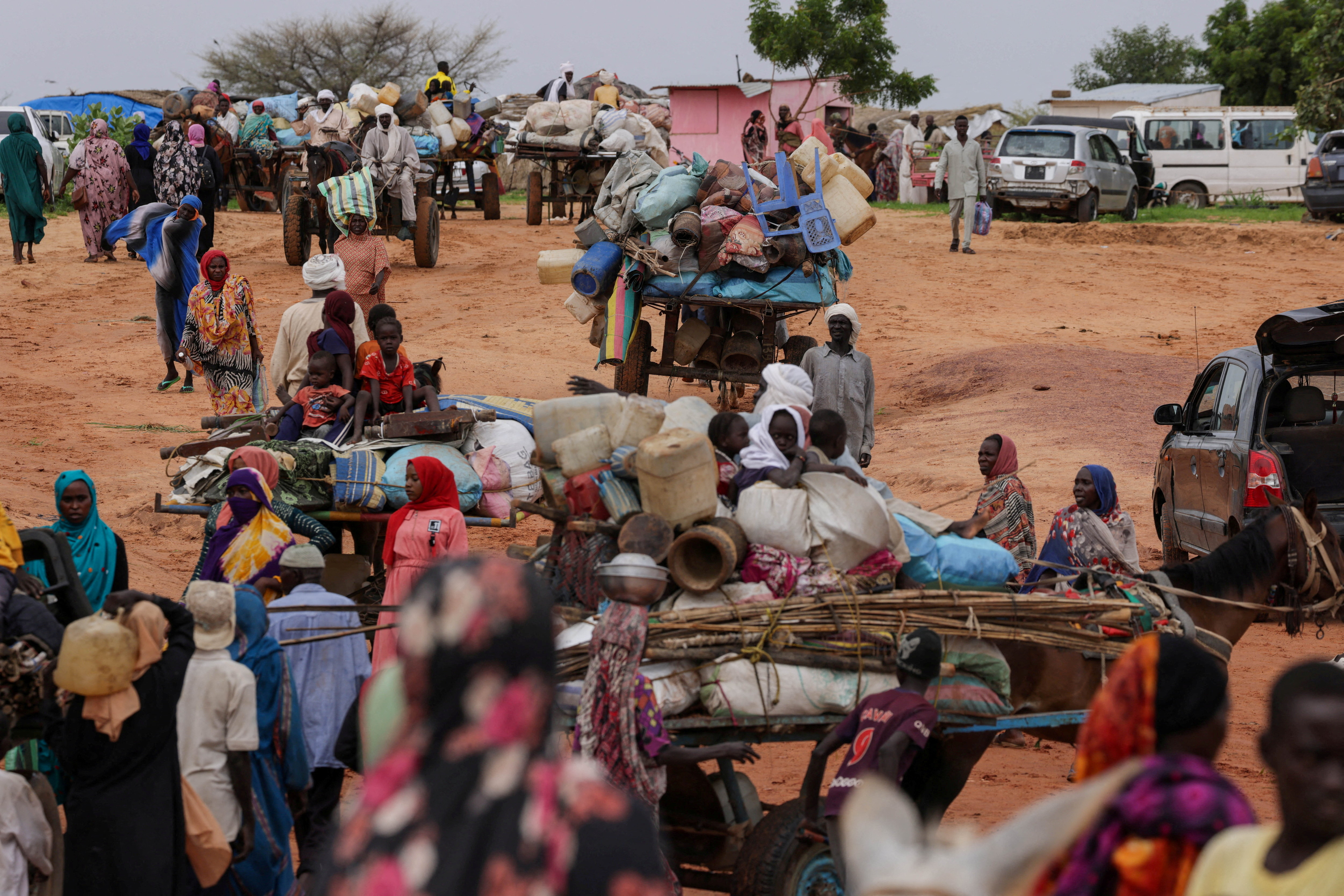
Which regions are the worst hit by the war?
Following the eruption of violence in Sudan's capital, Khartoum, the conflict quickly spread to Darfur and regions like Kordofan, Blue Nile states, and Merowe—a key city in the north, housing significant gold mines and a strategic military airport near the Egyptian border and River Nile.
This escalation of conflict has intensified the precarious situation in Darfur, where Arab and non-Arab Masalit tribes have long contended for limited water and land resources spanning over two decades. Now, the conflict has taken a distinctly ethnic turn.
Numerous accounts and official documents now detail atrocities that amount to ethnic cleansing, allegedly committed by Arab fighters in conjunction with members of the RSF (Rapid Support Forces), although these claims have been refuted by the RSF.
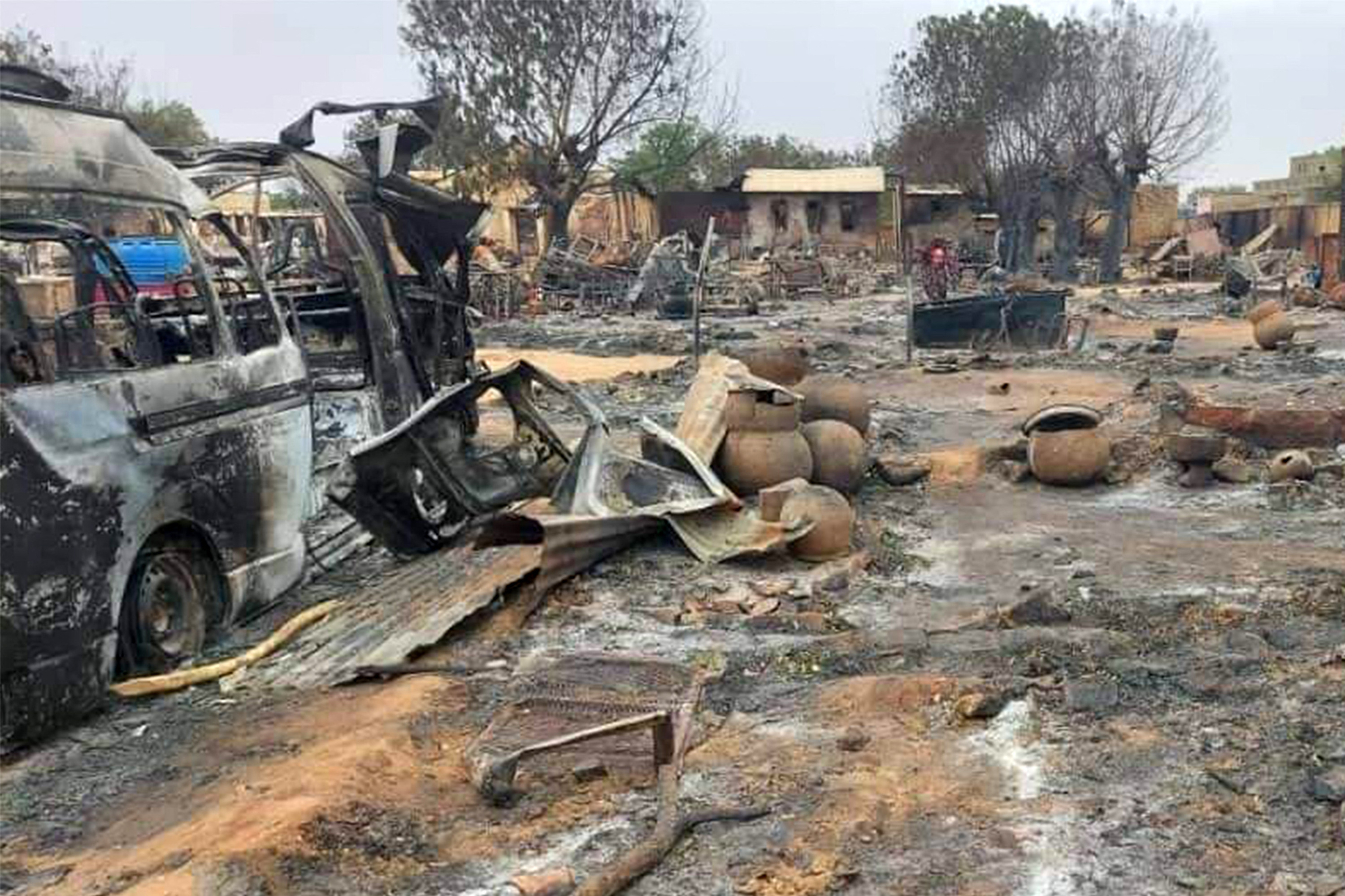
How have Sudanese people been affected?
Sudan is currently “experiencing a humanitarian crisis of epic proportions”, as described by the UN.
-
Shortages of Basic Necessities: The country faces acute shortages of essential supplies such as food, water, medicine, and fuel, resulting in soaring prices due to their scarcity.
-
Magnitude of Affected Population: Approximately half of Sudan's 49 million population urgently require humanitarian aid, with nearly 18 million experiencing "catastrophic levels of food insecurity", notably in regions like West Darfur, Khartoum, and among internally displaced persons (IDPs).
-
Challenges in Aid Delivery: Humanitarian organizations encounter obstacles in delivering aid due to access restrictions, security threats, and logistical challenges. Notably, in March, the UN successfully distributed food assistance to West Darfur after a prolonged hiatus.
-
Famine Concerns: According to Khair from Confluence Advisory, famine is likely underway in Sudan. However, the UN has refrained from declaring an official famine, partly due to reliance on the Sudanese Armed Forces (SAF) for access to Port Sudan, the primary sea route for aid.
-
Impact on Aid and Funding: The absence of a formal famine declaration has impeded emergency aid and funding from international agencies and the global community.
-
Disease Outbreaks: Sudan is grappling with severe outbreaks of diseases like cholera, measles, and malaria, according to the UN's Office for the Coordination of Humanitarian Affairs (UNOCHA).
-
Healthcare Accessibility: Approximately 65 percent of Sudan's population lacks access to healthcare, exacerbated by 70 to 80 percent of hospitals in conflict zones becoming non-functional due to air raids, supply shortages, and attacks on healthcare workers.
-
Infrastructure Damage: Critical infrastructure, including water treatment plants and power stations, has suffered extensive damage or complete destruction in many areas.
-
Educational Disruption: In Darfur, the closure of schools has deprived millions of children of education and a safe environment, as reported by the UN's refugee agency.
-
Child Vulnerability: An increasing number of children have been separated from their families, leaving them susceptible to sexual violence and psychological trauma amid the crisis.
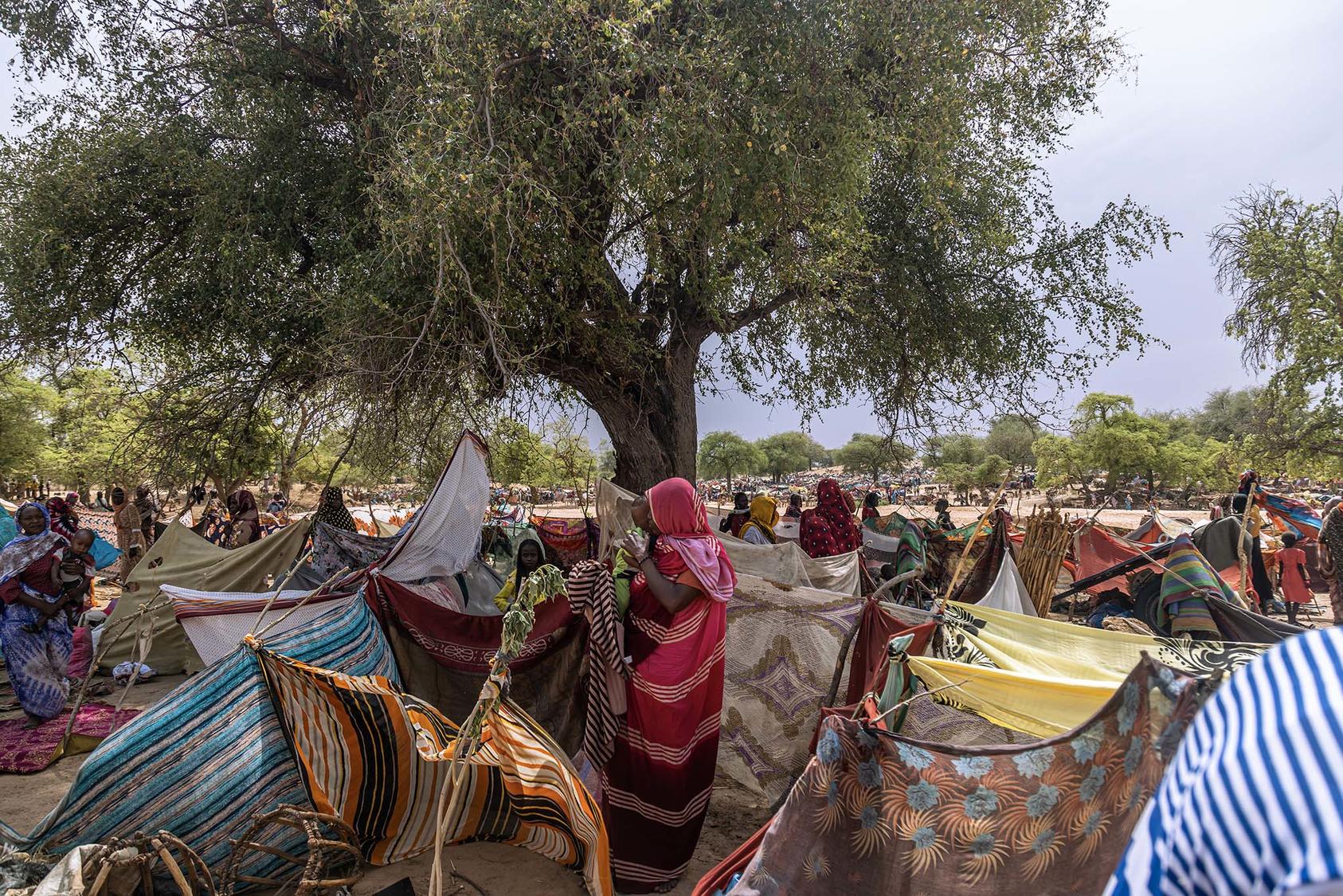
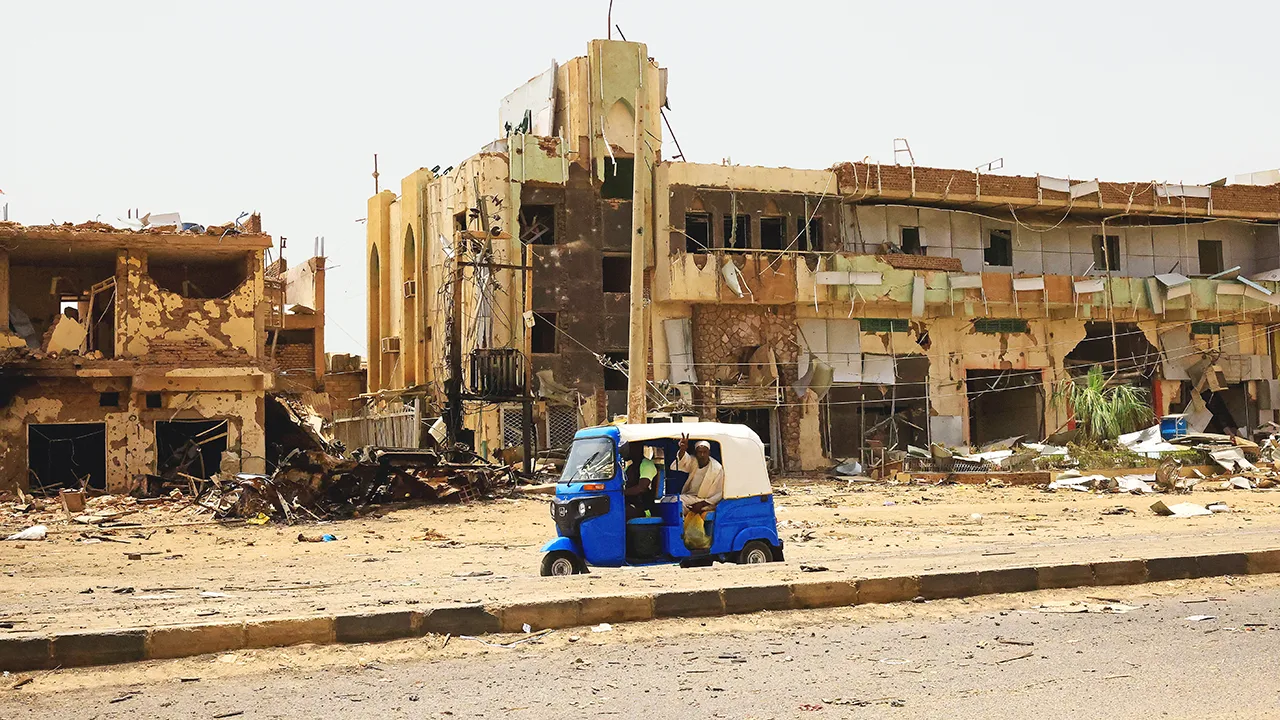
What's at risk here?
The ousting of Bashir had sparked optimism for Sudan's 49 million people to break free from autocracy, internal strife, and economic isolation. However, a year of conflict has wrought devastation: infrastructure lies in ruins, over 8.5 million are displaced, and nearly 5 million face famine. Homes, hospitals, and businesses are pillaged, while trade and agriculture suffer. The death toll is unknown but substantial, with accusations of war crimes on both fronts.
Relief efforts are stifled by fighting, theft, and bureaucracy. Internal rivalries raise fears of Sudan's breakup, which could destabilize its vast region, bordering the Sahel, Red Sea, and Horn of Africa. Hundreds of thousands flee to neighboring countries like Egypt, Chad, and South Sudan, with smaller numbers to Ethiopia and the Central African Republic.
Amidst the chaos, both sides exploit Sudan's lucrative gold reserves to fund their war.
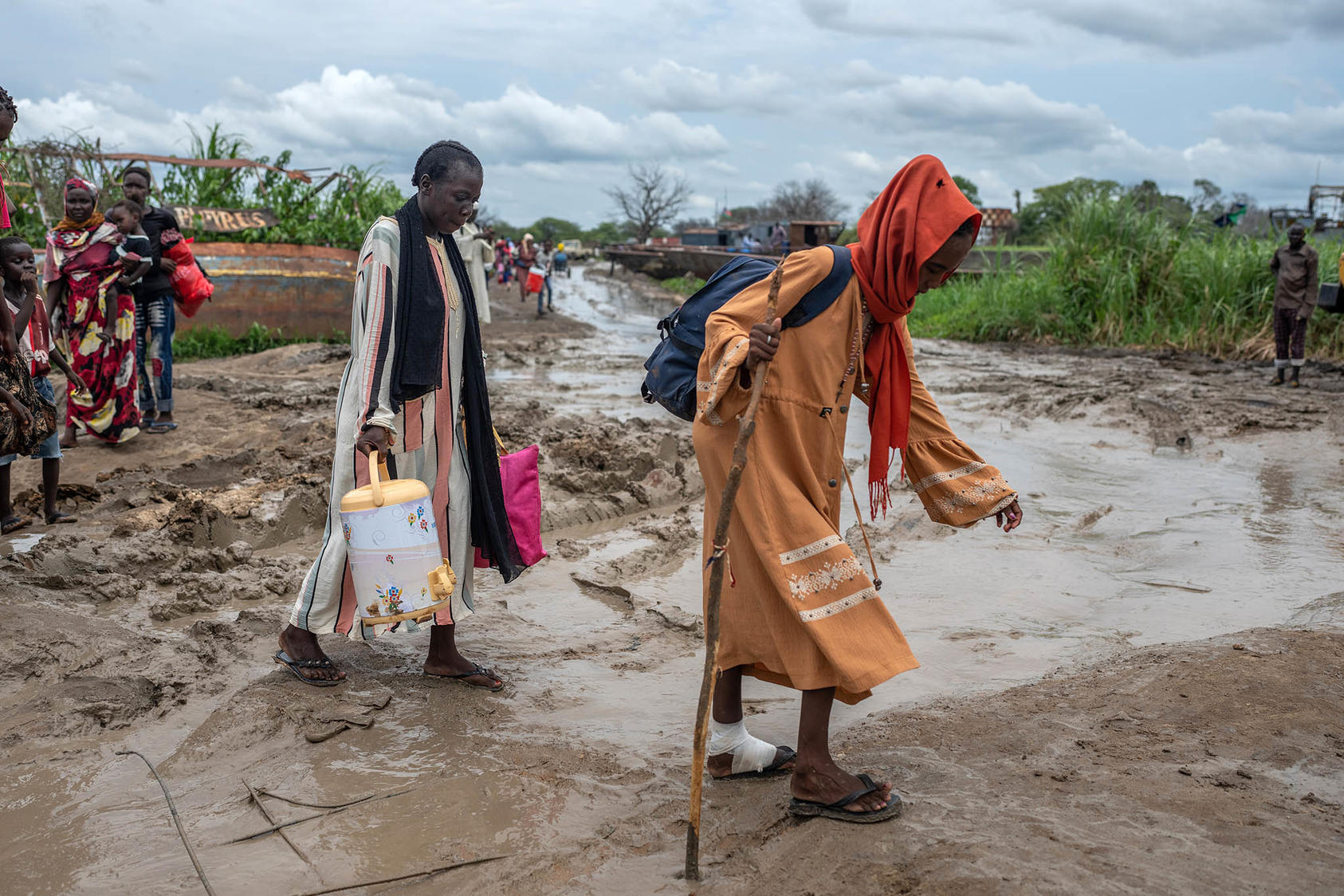
So, what are regional and global powers up to?
Sudan has become a battleground for regional proxy conflicts. Various global and regional powers such as the United Arab Emirates, Saudi Arabia, Egypt, Ethiopia, Iran, and Russia are vying for control and advantage in the broader region.
Egypt supports the army, while Iran supplies weapons and military support credited with recent battlefield successes. The United Arab Emirates (UAE) backs the RSF by supplying arms. Eritrea supports the army due to fears of RSF expansion towards its borders, while Ethiopia, allied with the UAE, leans towards the RSF.
Previously, Gulf states have invested in diverse sectors in Sudan, including agriculture and ports. Meanwhile, Russia has been exploring the establishment of a naval base along Sudan's Red Sea coast. The conflict's spillover could affect Chad, where some RSF fighters originate, and draw in Ethiopia, Eritrea, and other regional powers.
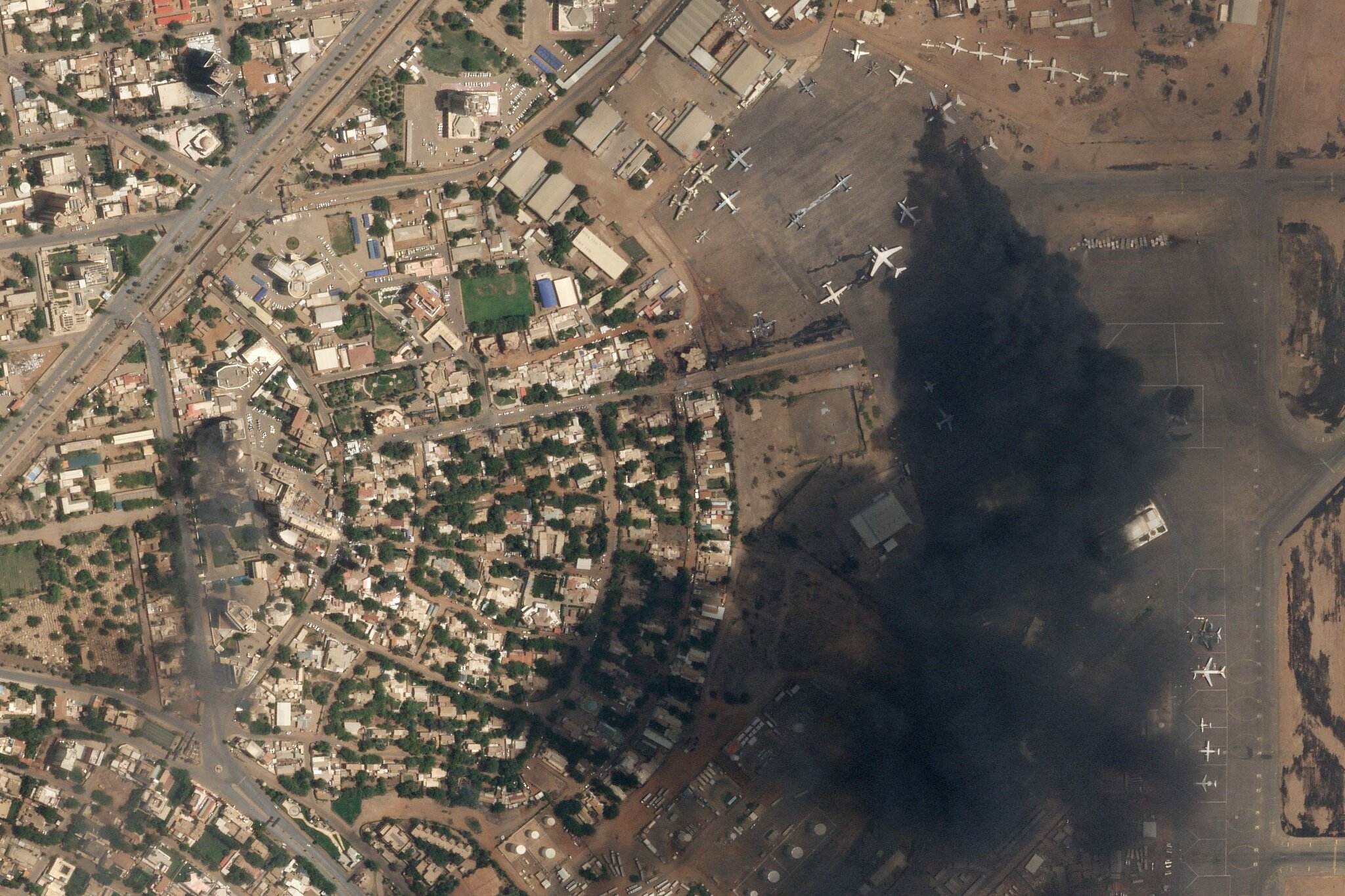
Egypt, led by President Abdel Fattah al-Sisi, a former military leader who ousted his Islamist predecessor, maintains strong connections with General Burhan and Sudan's military.
Following the overthrow of Bashir, Western powers, like the United States, initially supported Sudan's transition towards democratic elections. However, Sudan's diplomatic visibility has been somewhat overshadowed by other global conflicts, such as those in Ukraine and Gaza.
These foreign involvements risk escalating violence beyond Sudan's borders. For instance, Sudan's oil pipeline, vital to South Sudan, is at risk due to the conflict, potentially causing economic and internal instability.
Diplomatic efforts to end the conflict have been ineffective. Talks in Jeddah and efforts by IGAD failed to yield progress. Backchannel negotiations involving Egypt and the UAE led to agreements, including plans for a civilian government and elections, but these efforts also stalled due to internal and external pressures.
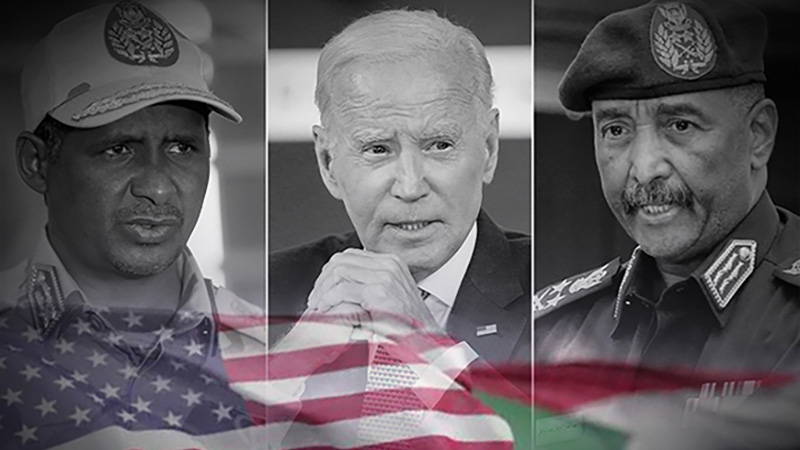
What steps have been taken to stop the war?
-
Challenges in Mediation: Efforts to end the war in Sudan are hindered by regional divisions among mediating nations and conflicting interests of global players like Russia, the US, Saudi Arabia, and the UAE.
-
Ceasefire Challenges: Despite multiple ceasefire agreements in the past year, both sides continue to accuse each other of ongoing fighting post each deal.
-
Upcoming Negotiations: Negotiations are scheduled to resume in Jeddah, Saudi Arabia, on April 18. Speculations suggest that Egypt and the UAE may join talks, supporting different factions in the conflict.
-
Increased US Involvement: The United States has heightened its involvement by appointing Congressman Tom Perriello as a special envoy for Sudan in February, which could reshape diplomatic efforts significantly.
-
Role of IGAD: The Intergovernmental Authority on Development (IGAD) from the Horn of Africa has played a role in securing commitments for ceasefire and dialogue from key military figures. However, it faces challenges such as Sudan's suspension of IGAD membership and boycotts of meetings.
-
UN Resolution: The UN Security Council passed a resolution calling for a Ramadan ceasefire, but key conditions like the withdrawal of RSF from occupied areas remain unresolved.
-
African Union (AU) Engagement: The African Union (AU) has engaged in political dialogue but without significant progress towards peace.
-
Exclusion of Armed Factions: Peace talks are hindered by the exclusion of various armed factions crucial for achieving resolution.
-
Continued Efforts: Despite past unsuccessful talks in Jeddah, efforts continue, including US-led initiatives and a donors' conference in Paris aimed at securing aid funding and enhancing humanitarian access.
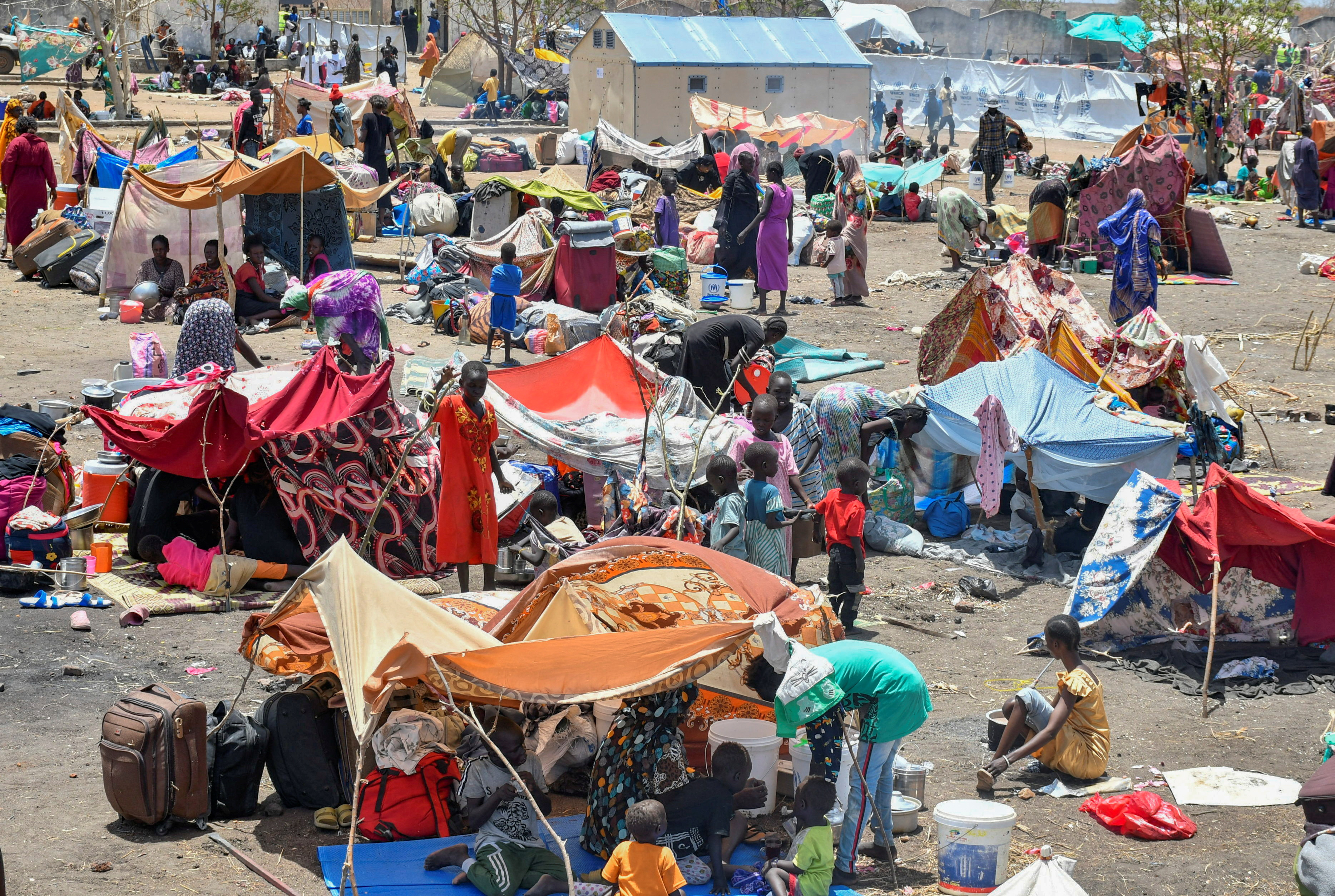
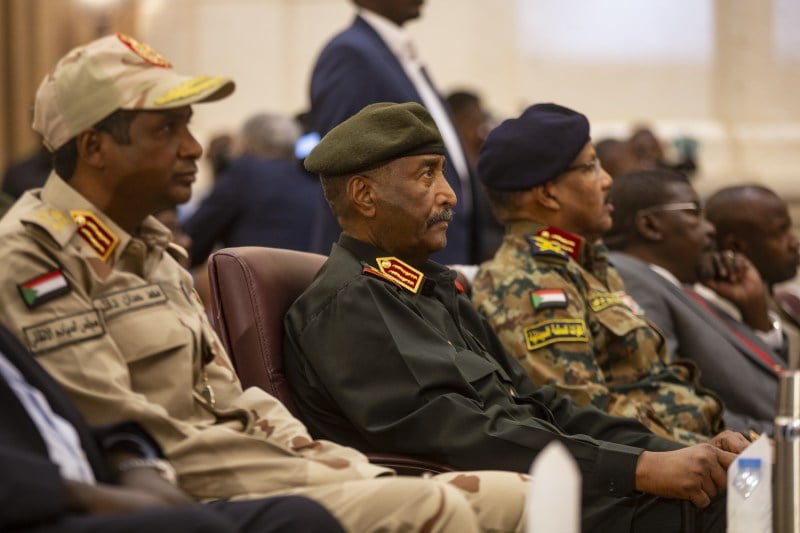
Can negotiations hit a breakthrough?
Amidst the devastation of war-torn regions, key international actors are finally aligning efforts towards a ceasefire, albeit belatedly. The U.S., UN, AU, and IGAD have appointed new officials to lead these endeavors, including Tom Perriello as special envoy for the U.S. and Ramtane Lamamra for the UN.
The AU has assembled a high-level panel chaired by Mohamed Ibn Chambas, and IGAD has designated Lawrence Korbandy as its special envoy. These appointments signal a renewed global commitment to end the conflict.
Egyptian-Emirati diplomacy could prove pivotal in ending hostilities, given their influence over the warring parties and improved relations between Abu Dhabi and Cairo. Crisis Group has emphasized the necessity of Egyptian and Emirati support for any peace process to succeed.
The relationship between Egypt and the UAE has strengthened with significant financial aid from the UAE to Egypt. The unfeasibility of winning the war, the rise of Bashir-era Islamists (viewed skeptically by Cairo and Abu Dhabi), and Iran's efforts to bolster influence in Sudan through army support all provide compelling reasons for intensified diplomatic efforts by both nations, albeit discreetly for now.
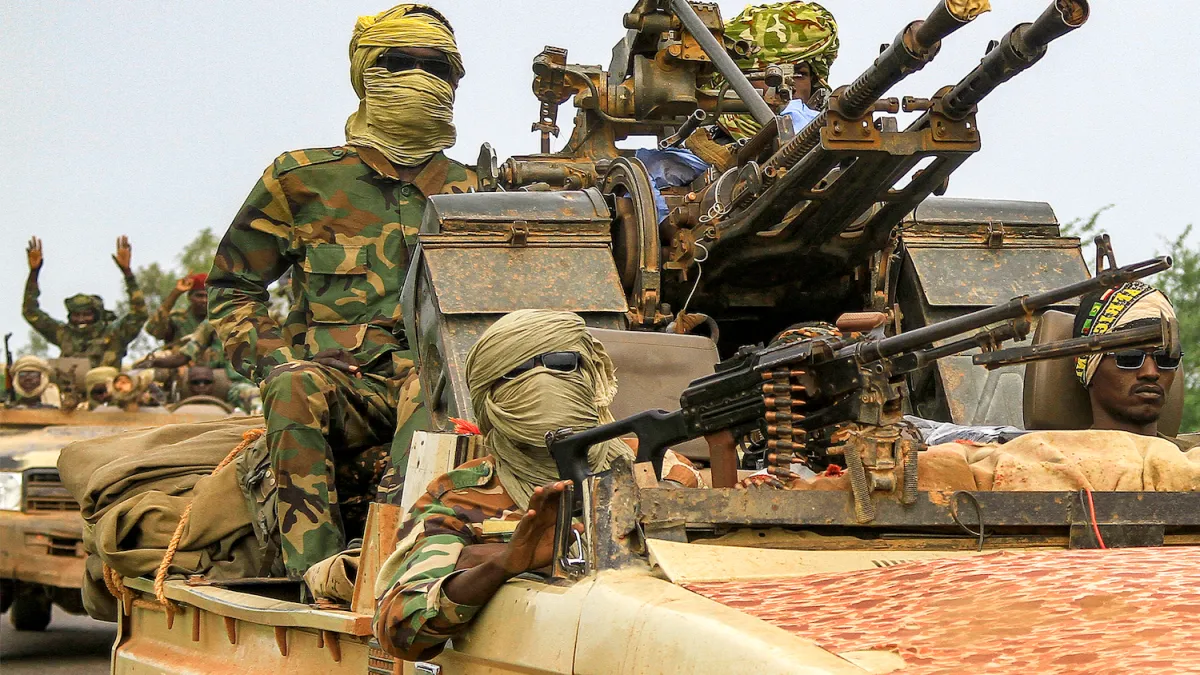
A Matter of Urgency
The U.S., Saudi Arabia, Egypt, and the UAE hold significant influence over the warring factions in Sudan and are best positioned to broker a ceasefire, facilitate humanitarian aid delivery, and begin the challenging task of rebuilding the country. Failure to act swiftly could lead to chaos, widespread starvation, and regional conflict. Urgent action is needed as new warlords are being enticed into the fighting with promises of future gains, complicating peace negotiations.
To address this crisis, the U.S. and Saudi Arabia are planning talks in Jeddah, with Crisis Group advocating for the involvement of Egypt, the UAE, and new envoys from the AU, UN, and IGAD. Consolidating negotiations will increase foreign pressure on both sides and discourage them from evading serious discussions.
The focus should be on achieving an immediate and lasting ceasefire rather than incremental measures. If progress stalls in Jeddah, key actors like the U.S. and the UN should coordinate to ensure different negotiation tracks complement each other.
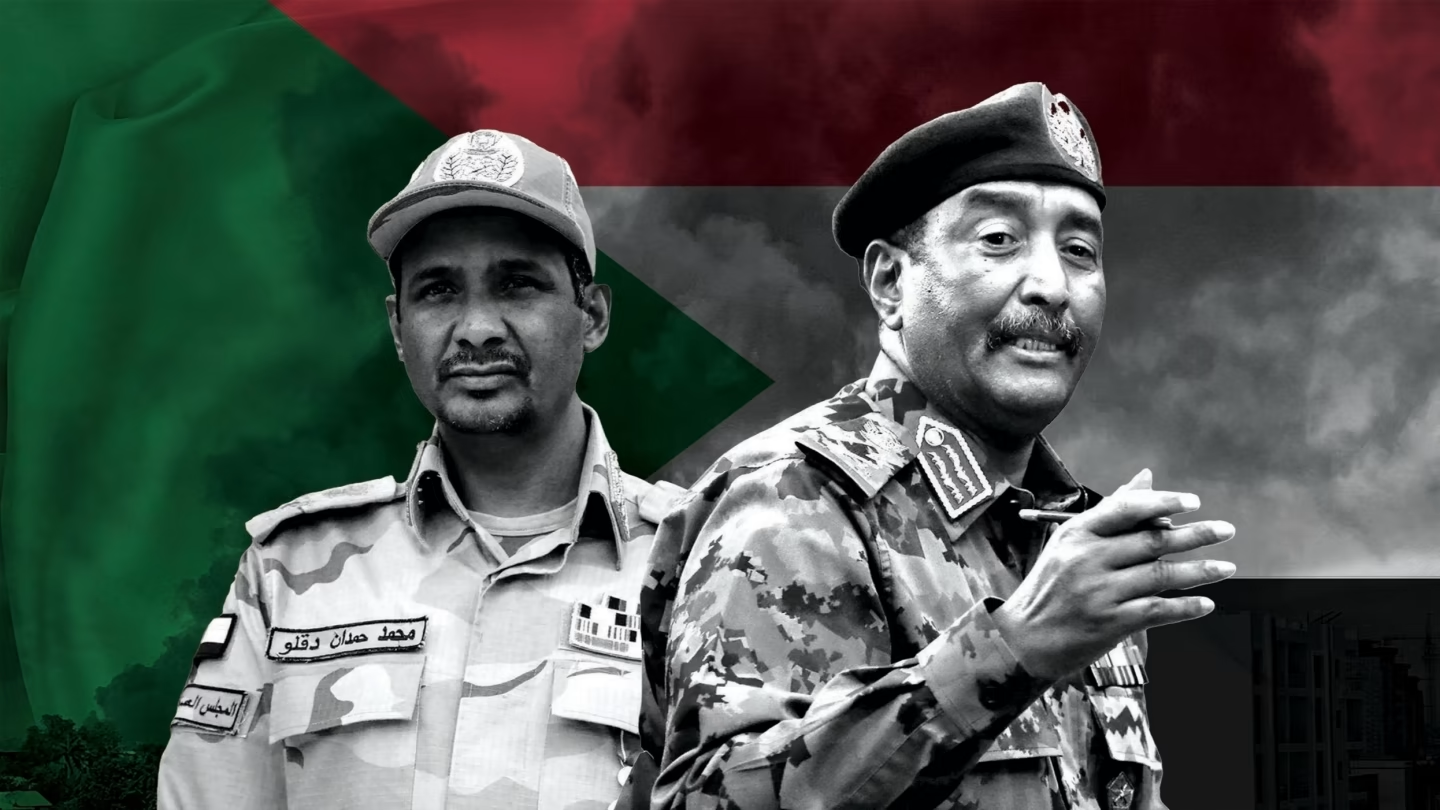
Simultaneously, efforts to prevent mass starvation must be prioritized. Influential parties should publicly and privately urge the conflict parties to permit unhindered food aid delivery. If leaders obstruct aid, alternative channels, including local volunteers, should be explored, particularly in areas like Khartoum, Darfur, Kordofan, and Gezira, where aid organizations have withdrawn.
The humanitarian conference in Paris on 15 April presents an opportunity for coordinated action to save Sudanese lives by bolstering underfunded aid efforts.
Ultimately, a stable ceasefire is crucial to allow relief into all parts of Sudan and could pave the way for a permanent end to hostilities, though rebuilding the state and restoring normalcy will be daunting. With thousands dead, millions displaced, and the state weakened, halting the violence and preventing further harm is imperative.
Inputs from agencies
Image Source: Multiple agencies
© Copyright 2024. All Rights Reserved Powered by Vygr Media.

